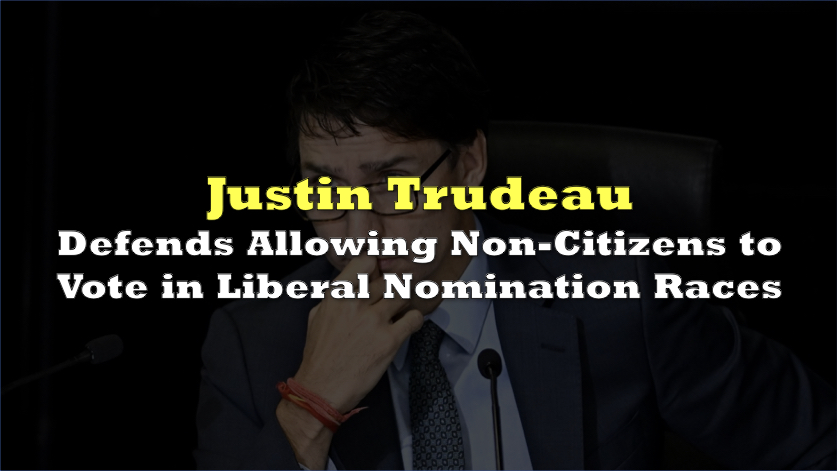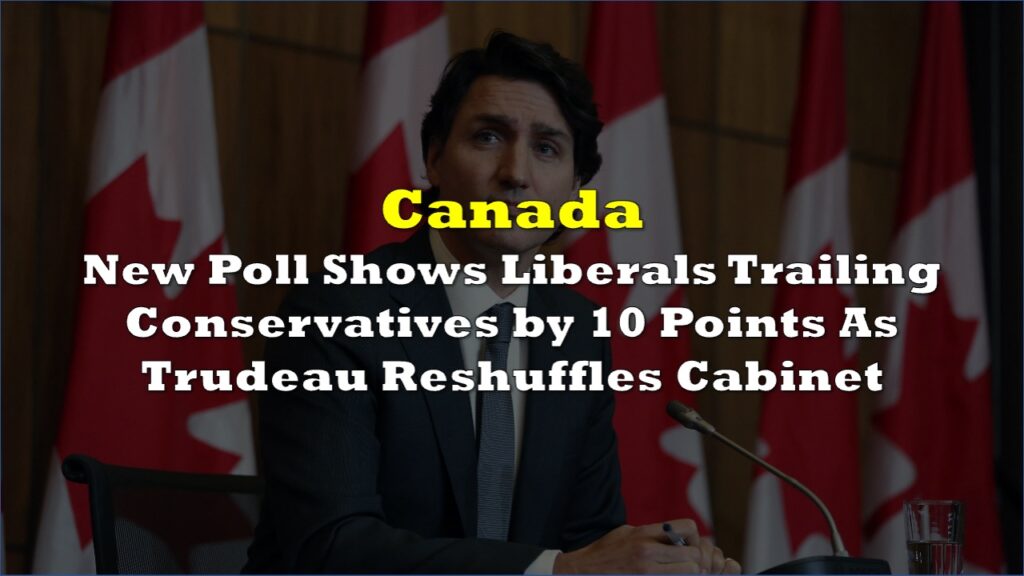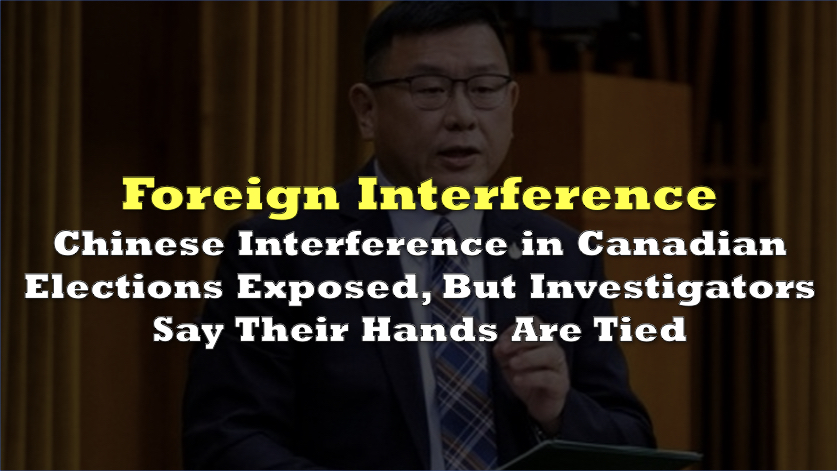A recent post expressed concern over Prime Minister Justin Trudeau defending the rules allowing non-citizens, including temporary foreign workers and international students, to vote in Liberal Party nomination races. This revelation has sparked debate, especially given the ongoing focus on foreign interference in Canadian politics.
The post on X quotes a statement from Trudeau, where he explains the rationale behind this decision in an interview prior to the recent inquiry on foreign interference. He emphasized that expanding the pool of voters in nomination races, even to non-permanent residents, helps to engage future voters. He mentioned that these individuals might be too young to vote or are not yet Canadian citizens but could become potential voters later on.
The post, quoted by Martin Pelletier, a prominent commentator, expressed concern, calling the situation “insane,” likely referring to the broader context of foreign interference concerns. The debate over who should be allowed to participate in political processes, even internal party ones, has gained traction, especially following high-profile reports of foreign meddling in elections.
This is getting insane. https://t.co/idqfXLRACT
— Martin Pelletier (@MPelletierCIO) October 16, 2024
The Liberal Party of Canada has, for years, allowed non-citizens to vote in its internal nomination races. This includes temporary residents like international students and foreign workers, as long as they are members of the party. This practice contrasts with the more restrictive rules of other parties, like the Conservative Party, which only allows Canadian citizens and permanent residents to participate in such votes.
Trudeau’s defense is rooted in the idea of engagement. By involving temporary residents and those not yet eligible to vote in general elections, the party seeks to build a relationship with potential future citizens and voters. These nomination races do not determine election outcomes directly but decide which candidates represent the party in future elections.
The timing of this discussion is significant. Over the past few years, there has been growing concern about foreign interference in Canadian elections. The issue came to light most notably during inquiries into meddling by foreign states in Canada’s political processes. While these nomination races are internal, some argue that allowing non-citizens to participate opens the door for potential foreign influence .
Critics believe that this could create vulnerabilities, especially in ridings where a nomination victory essentially guarantees election success due to strong party loyalty. Such concerns have led some to call for changes in the rules governing nomination races, including a proposal by Elections Canada to bar non-citizens from voting in these processes.
Supporters of Trudeau’s stance argue that broadening participation in nomination races fosters inclusivity and political engagement among communities who may become Canadian citizens in the future. For them, this aligns with Canada’s values of diversity and multiculturalism.
On the other hand, critics argue that safeguarding the integrity of the political process should take precedence, especially when foreign interference is a pressing issue. The National Security and Intelligence Committee of Parliamentarians, in a recent report, highlighted loopholes in the current system that could be exploited by foreign actors .
Information for this story was found via the sources and companies mentioned. The author has no securities or affiliations related to the organizations discussed. Not a recommendation to buy or sell. Always do additional research and consult a professional before purchasing a security. The author holds no licenses.












One Response
Strange that it goes unmentioned the CPC also does not require proof of citizenship to vote in their leadership race, which about a year ago they admitted was also subject to foreign interference. The difference is that the LPC leadership race has not been subject to such allegations. Allegations based on CSIS reports. That the current leader of the CPC refuses to be read in on. Lol.
I don’t think Modi’s sycophant at the head of the CPC is going to win the next election. There are a number of statistical shortcomings in these polls making the rounds in Canadian academia at the moment. Should be a very interesting 10 months)